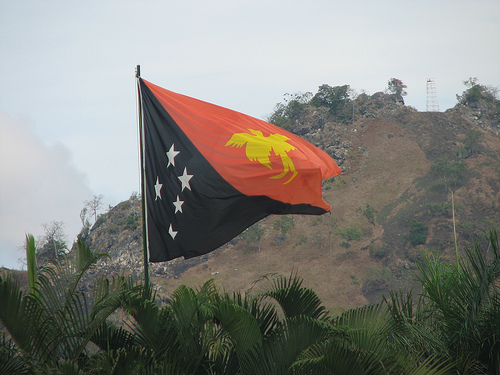
Papua New Guinea (PNG) can be a little confusing. Although it shares half of the island of New Guinea with Papua – an Indonesian province – Papua New Guinea is distinctly different from its neighbor. Indeed PNG seems to exist in a world of its own – one plagued by political mismanagement, human rights abuses, corruption, and low levels of development.
Contrary to the outbursts of unrest in the Middle East, however, the peoples of PNG are highly unlikely to lead protests or a revolt against their government. PNG is a country of incredible linguistic and cultural diversity – though perhaps surprisingly, not in terms of religion (96 percent are Christian). It is also a relatively “young” country, having only gained independence in 1975. The current Prime Minister, Sir Michael Somare, has been in and out of power in PNG since 1972, and like certain other political heads of state, seems not to want to relinquish his position. Just over a month ago, the government successfully evaded another vote of no confidence by using its majority to adjourn parliament until May. Deputy opposition leader Bart Philemon notes that by the next election, there will have been 10 years of (relative) political stability – but hardly any improvement in the standard of living for the majority of the population.
